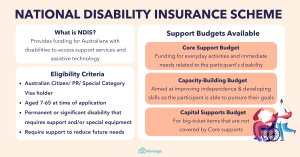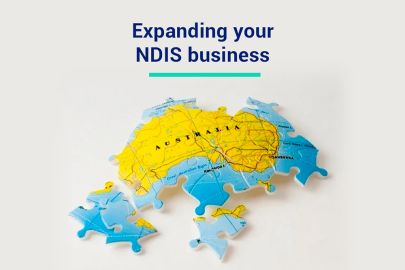Understanding NDIS Allocation
Fair Funding: Navigating NDIS Allocation Navigating the National Disability Insurance Scheme (NDIS) can be a complex journey, particularly when it comes to securing fair funding allocations. The NDIS aims to provide support and assistance to Australians with disabilities, empowering them to achieve their goals and participate fully in society. However, understanding how funding is allocated and ensuring equitable distribution can be challenging for participants and their families.
The Importance of Fair Funding
Fair funding allocation is crucial for individuals accessing the NDIS to receive the support they need to live independently and pursue their aspirations. Without adequate funding, individuals may struggle to access essential services, therapies, and equipment, hindering their ability to participate in daily activities and reach their full potential. Fair funding ensures that all participants have equal opportunities to access the support they require, regardless of their circumstances or the nature of their disability.
Navigating the Allocation Process
The process of securing fair funding through the NDIS begins with the development of a participant’s individualized plan. This plan outlines the participant’s goals, needs, and preferences, serving as the foundation for determining the appropriate level of support and funding required. Participants, along with their families or carers, work closely with NDIS planners to identify their support needs and develop a plan that aligns with their objectives.

Documentation and Evidence
One of the key factors in securing fair funding allocation is providing comprehensive documentation and evidence of the participant’s disability-related needs. This may include medical reports, assessments from healthcare professionals, and statements from the participant and their support network. The more detailed and specific the documentation, the better equipped the NDIS planners will be to assess the participant’s requirements accurately.
Advocacy and Support
Advocacy plays a crucial role in ensuring fair funding allocation within the NDIS. Participants and their advocates can actively engage with the planning process, advocating for their needs and preferences to be accurately reflected in their individualized plans. Advocacy organizations and support services can provide valuable guidance and assistance throughout the planning and review processes, helping participants navigate complex bureaucratic procedures and ensure their voices are heard.
Challenges and Considerations
Despite the NDIS’s commitment to fair and equitable funding allocation, challenges and disparities may arise in practice. Limited funding availability, inconsistencies in assessment processes, and variations in individual circumstances can impact the allocation of resources and support. It is essential for participants and their advocates to remain vigilant and proactive in advocating for fair treatment and equitable outcomes.
Review and Appeal Processes
Participants who are dissatisfied with their funding allocations have the right to request reviews and appeal decisions made by the NDIS. This process allows participants to challenge funding decisions they believe to be unfair or inadequate, providing an avenue for recourse and ensuring that their needs are adequately addressed. Engaging with the review and appeal processes can be complex, but with the right support and guidance, participants can navigate these procedures effectively and advocate for fair outcomes.
Community Engagement and Awareness
Building awareness and understanding of NDIS funding allocation processes within the broader community is essential for promoting fairness and equity. By fostering dialogue and engagement, individuals can advocate for systemic improvements and address disparities in funding allocation. Community organizations, advocacy groups, and policymakers play a crucial role in driving positive change and ensuring that the NDIS remains true to its principles of fairness and inclusion.
Conclusion
Navigating NDIS funding allocation requires diligence, advocacy, and a thorough understanding of the process. By documenting needs, advocating for fair treatment, and engaging with support services, participants can ensure that their funding allocations accurately reflect their requirements and aspirations. Fair funding allocation is essential for empowering individuals with disabilities to live fulfilling lives and participate fully in their communities, and it is incumbent upon all stakeholders to work together to uphold this principle within the NDIS.





